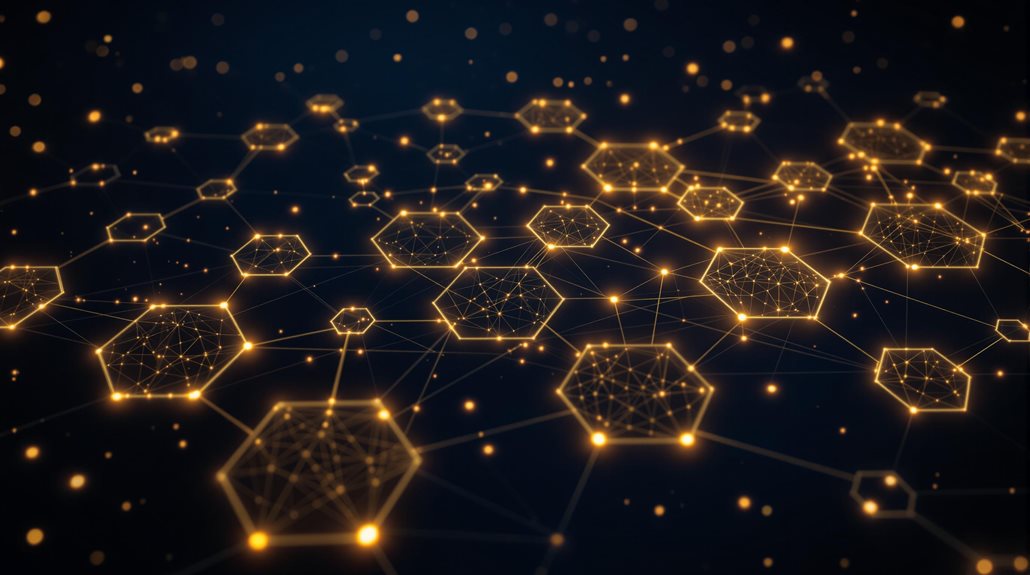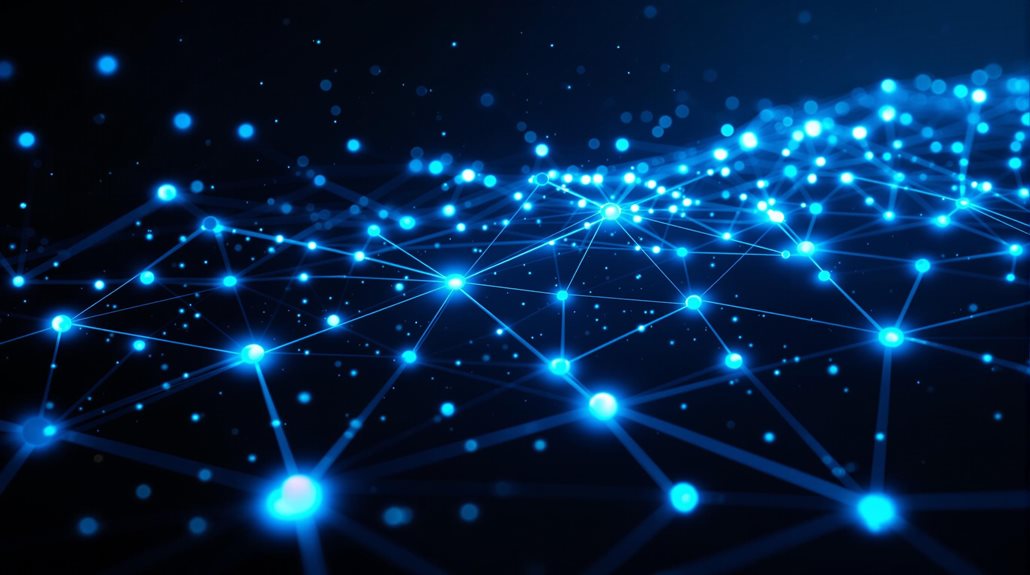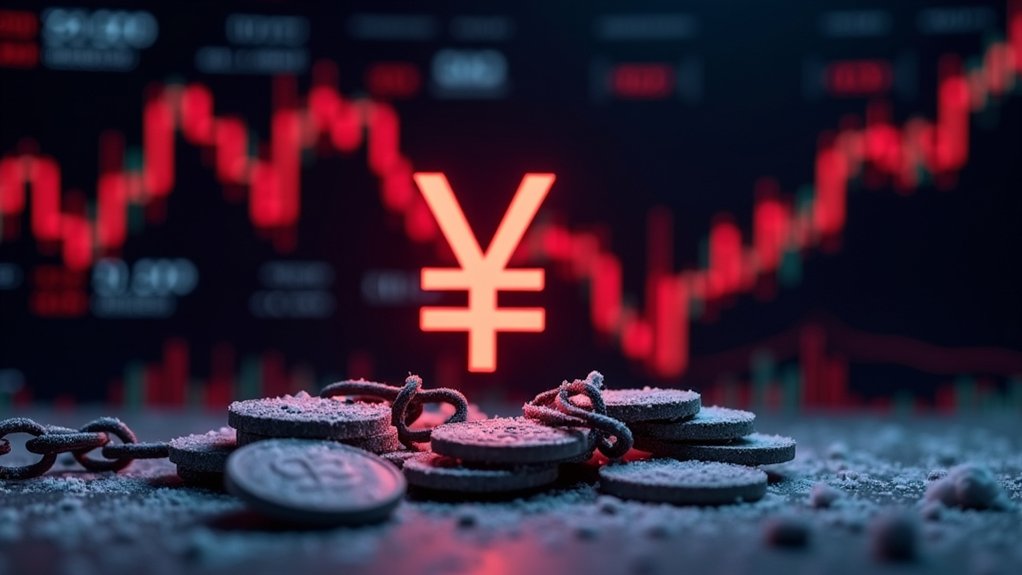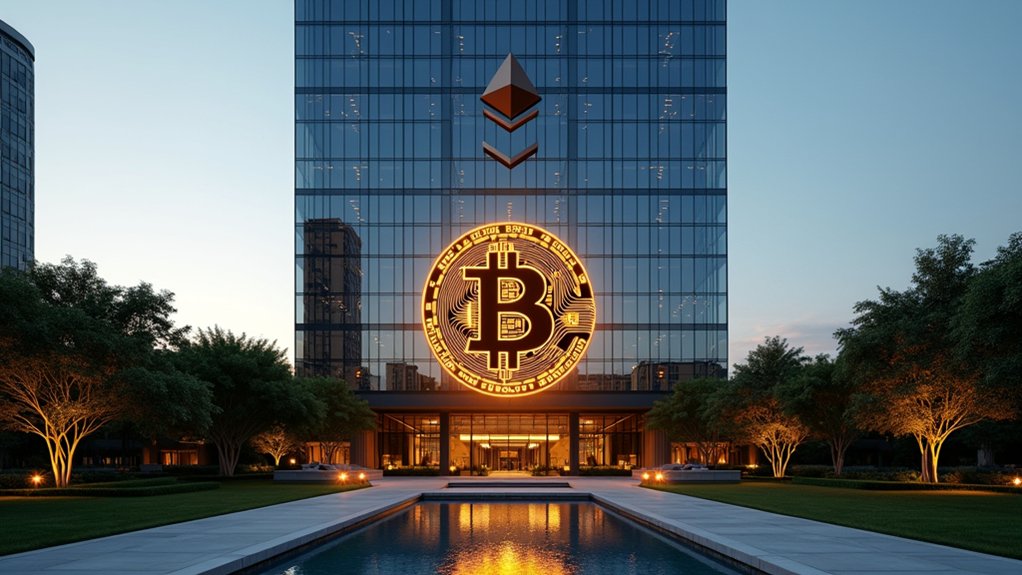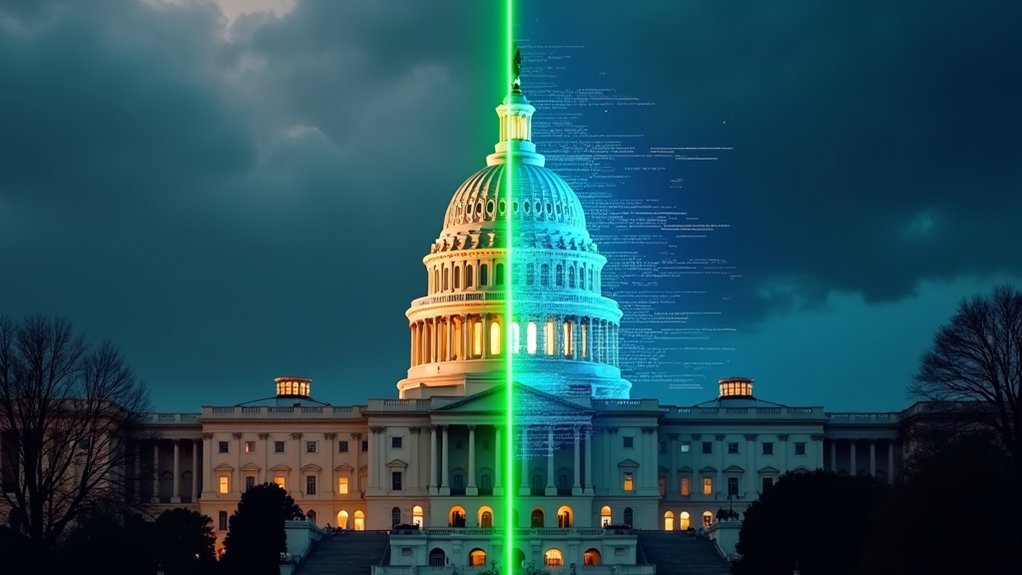A DAO is like a digital club that runs on blockchain technology instead of having traditional bosses and managers. It’s owned and controlled by its members, who use special tokens to vote on decisions and proposals. DAOs operate 24/7 through smart contracts – computer code that automatically executes rules and transactions. They’re used for investments, digital art collecting, and building online communities. There’s much more to discover about how these internet-native organizations are reshaping business and collaboration.
Quick Overview
- A DAO is a blockchain-based organization run by code and member voting instead of traditional management hierarchies.
- Members use governance tokens to participate in decision-making, with votes recorded transparently on the blockchain.
- DAOs operate continuously and globally, enabling members worldwide to collectively manage resources and make decisions.
- Smart contracts automatically execute organizational rules and transactions, reducing the need for intermediaries and paperwork.
- DAOs can serve various purposes, from investment groups and art collecting to social communities and decentralized finance platforms.

The world of cryptocurrency has given birth to an innovative way of organizing people called DAOs, or Decentralized Autonomous Organizations. These digital organizations run on blockchain technology and don’t have traditional bosses or managers. Instead, they’re governed by computer code called smart contracts and by the votes of their members. Members typically commit their tokens during voting periods that last between three to seven days.
Think of a DAO like a digital club where everyone follows rules written in code. All the group’s activities and financial transactions are recorded on the blockchain, which means they’re transparent and can’t be changed. Members use special tokens, called governance tokens, to vote on important decisions about how the organization should operate. Transaction fees for participating in DAO activities can be quite substantial, sometimes reaching up to $100 per transaction.
DAOs come in different shapes and sizes. Some DAOs focus on investments, where members pool their money to buy crypto assets or fund projects. Others are built around collecting digital art or managing decentralized finance platforms. There are even social DAOs where people with shared interests come together to build communities. The bottom-up management approach ensures that every member has a voice in the organization’s direction.
The organization’s treasury, which usually holds cryptocurrency, is managed according to the rules set in the smart contracts. When members want to make changes or start new projects, they submit proposals that everyone can vote on. The code is open-source, which means anyone can check how it works and suggest improvements. Many DAOs leverage Ethereum blockchain to enable peer-to-peer financial services without intermediaries.
One of the biggest advantages of DAOs is that they operate 24/7 and anyone from anywhere in the world can join. They cut down on paperwork and traditional business bureaucracy since everything happens automatically through code. This setup can lead to fairer decision-making since all members have a chance to participate.
However, DAOs aren’t without their challenges. In 2016, a famous DAO called “The DAO” was hacked, showing that security risks exist. There’s also uncertainty about how different countries’ laws apply to these organizations, since they’re so new and different from traditional companies.
Despite these challenges, DAOs represent a new way of organizing people and resources in the digital age. They’ve become particularly important in the cryptocurrency world, where they help manage everything from investment funds to online communities. As blockchain technology continues to evolve, DAOs are likely to play an increasingly important role in how people work and make decisions together online.
Frequently Asked Questions
How Much Money Do I Need to Join a DAO?
The cost to join a DAO varies greatly.
Some DAOs don’t require any money to join, while others need substantial investment. Members can join free DAOs by contributing their time and skills.
Mid-range DAOs typically ask for $1,000 to $50,000 in investment. High-end, exclusive DAOs might require $100,000 or more.
Many DAOs use governance tokens or membership NFTs, which can cost anywhere from less than $1 to over $1,000.
Can DAOS Be Hacked or Manipulated by Large Token Holders?
Yes, DAOs can be hacked and manipulated.
Hackers have stolen millions through smart contract vulnerabilities, like in The DAO hack of 2016 where $60 million was taken.
Large token holders, called “whales,” can also manipulate votes by using their significant voting power at the last minute. They’re able to sway decisions in their favor.
Some attackers even create fake accounts or buy up tokens secretly to gain control over DAO decisions.
What Happens to My Tokens if a DAO Fails?
When a DAO fails, tokens typically lose most or all of their value.
They’ll often become worthless since they can’t be used for their intended purpose anymore. The tokens might get delisted from crypto exchanges, making them hard to trade.
Sometimes, there are recovery efforts like hard forks or token swaps to help holders, but these aren’t guaranteed.
The tokens might keep some collector’s value, but they usually can’t be used for governance anymore.
Are DAO Earnings Taxable in Different Countries?
Most countries haven’t set clear tax rules for DAO earnings yet.
In the US, people generally report DAO income on their personal tax returns. Other nations might tax DAO earnings as regular income or capital gains when tokens are sold.
Each country handles crypto taxes differently, and it’s evolving as governments figure out how to deal with DAOs. Currently, participants usually need to follow their local tax laws for crypto-related income.
Can Traditional Companies Convert Themselves Into DAOS?
Yes, traditional companies can convert into DAOs.
The process usually happens step by step, with companies first setting up blockchain systems and creating tokens for voting.
They’ll need to change how they make decisions, moving from a top-down approach to one where token holders get a say.
Some companies choose a hybrid model, keeping some traditional business elements while adding DAO features.
The shift can be complex and needs careful planning for legal compliance.
